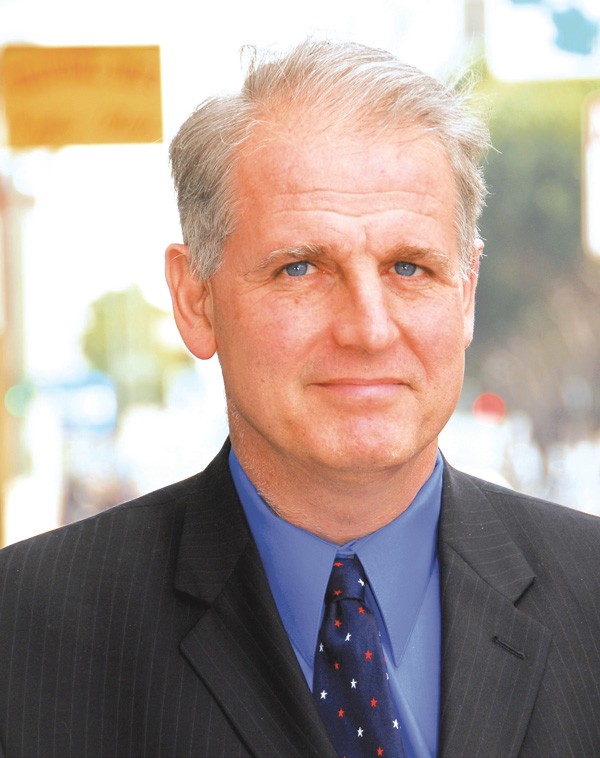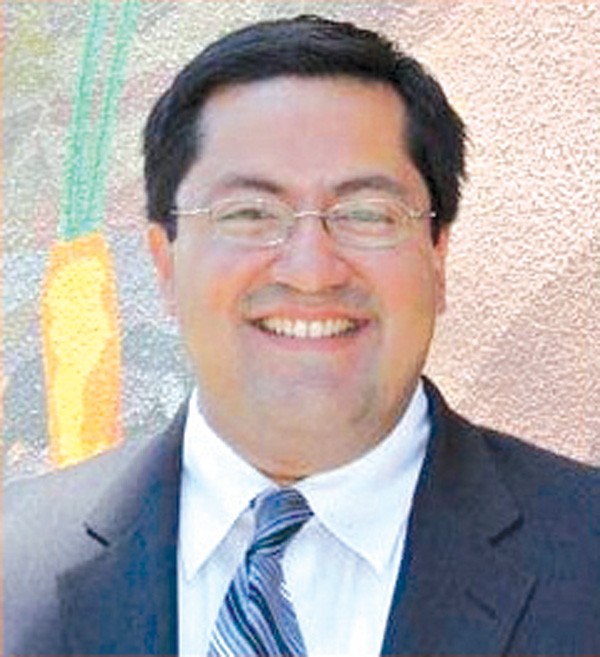Ranked-choice voting is yielding new electoral strategies in Berkeley, where next month’s elections will determine whether Mayor Tom Bates retains or strengthens his support on the city council. In District 8, two candidates have joined forces to challenge two-term councilman and Bates ally Gordon Wozniak. In District 7, Bates and his allies have endorsed both the opponents of twelve-year incumbent Kriss Worthington. In District 4, that same council bloc also endorsed two opponents to incumbent Jesse Arreguin until one of them abruptly quit the race late last month. Only in District 1 are the dynamics of council politics still unchanged by the city’s new rank choice election process.
If Bates and his team of five council colleagues have their way, dissident city council voices may be a thing of the past. Bates and the councilmembers who almost always support him — Wozniak, Linda Maio, Darryl Moore, Laurie Capitelli, and Susan Wengraf — are backing incumbents Wozniak and Maio. And they’re endorsing George Beier and Jim Novosel in their bids to defeat councilmen Worthington and Arreguin. The Bates team, which is supported by the Berkeley Democratic Club, supports the proposed downtown plan, the biggest issue in this year’s election.
Meanwhile, the dissident council team, Worthington and Arreguin, are endorsing one another and support like-minded candidates to replace Wozniak and Maio. They endorse Jasper Kingeter in District 1 and Jacquelyn McCormick/Stewart Jones in District 8. This slate, which has the backing of the Green Party of Alameda County, opposes the downtown plan, known as Measure R.
In District 8, the hillside area stretching from UC Berkeley to the Oakland hills, interior designer McCormick and substitute teacher Jones are combining forces to challenge Wozniak. “Help break up a stagnant political scene: Vote for me in the #1 slot, and vote for Stewart Jones in the #2 slot,” McCormick wrote on her Facebook page. On his web site, Jones calls for the reverse.
This duo opposes Measure R, which seeks to speed up the city’s laborious landmarking process and permits the construction of three new 180-foot buildings close to BART. McCormick says the measure is not sufficiently detailed and contends that it would allow development without community input. Jones calls it “green-washed rhetoric” and faults it for prioritizing new construction over reusing existing buildings. Both say that fast-tracking landmarking would not allow time to save historic buildings from the wrecking ball.
Wozniak counters that after citizens succeeded in securing a referendum on the council majority’s more-detailed downtown plan, it became necessary to put a broad plan before voters. He says Measure R promotes “high-green” construction downtown and says he supports faster landmarking because developers who opt for the accelerated pace would have to pay fees to provide public plazas, parks, and affordable housing.
In spite of their partnership, McCormick and Jones don’t agree on every issue. Jones supports Measure T, which would regulate marijuana dispensaries and collectives, saying that it “reiterates Berkeley’s commitment to providing patients safe access to medical marijuana.” McCormick, however, says Measure T would increase crime and “unregulated business activities in our neighborhoods.” Wozniak also supports Measure T
Meanwhile, progressives who support McCormick might be surprised to discover that her stock portfolio, as disclosed in her “California Form 700,” includes shares in Philip Morris, Halliburton, and Chevron.
Despite their combined efforts, the Jones-McCormick team has raised just $13,000, less than half of Wozniak’s $32,000.
In District 7 — South Campus adjacent to the university — two candidates are challenging Worthington: Willard Park Neighborhood Association President George Beier, who is attempting to unseat Worthington for the third time, and former San Francisco business owner Ces Rosales, a newcomer to Berkeley politics. The challengers haven’t teamed up against Worthington, although Bates’ group has dual-endorsed Beier and Rosales. The latter’s campaign manager, Annie Flores, said both the Beier and Worthington campaigns have approached Rosales for her second-place endorsement. But Flores said Rosales prefers to run independently and is not recommending either opponent.
By September 30, Beier had collected the most cash: $36,798, which includes a $7,200 loan from himself. Worthington has $20,500 and Rosales has $11,500, which includes a $2,000 loan to herself. Thirty of Rosales’ 46 contributors live outside Berkeley.
In campaign literature and on the stump, Beier hammers at crime. He talks about the university having the fourth-highest property crime rate of any US college town and District 7 having the most crime in the city. Beier wants security cameras in People’s Park, full funding for police, and establishment of information networks alerting people to neighborhood crime.
Rosales points to bicycle theft from her own backyard and says police need to pay greater attention to such crimes, as well as to people blocking Telegraph Avenue sidewalks.
Worthington responds that crime in District 7 is decreasing. “It’s important that people don’t get carried away with fear,” he said. He credits programs he’s fostered, such as bringing back bike cops and better coordination between UC and city police, with helping to reduce the neighborhood’s crime rate.
In District 4 — downtown Berkeley and its environs — incumbent Arreguin, elected in 2008 to replace deceased Councilwoman Dona Spring, is facing architect Novosel, who is endorsed by the Bates team. Eric Panzer, dual-endorsed by Bates and friends, was going to partner with Novosel but quit the race at the end of September. A third District 4 challenger is Bernt Reiner Wahl, a fellow in engineering at UC Berkeley.
The Arreguin-Novosel race is being fought over Measure R. Novosel supports the measure, characterizing it as a simple “sense motion” that asks the community if it wants three new 180-foot buildings and whether it would accept expedited landmarking. “We’re talking about trying to get things built sooner,” said Novosel, arguing that the measure would move projects for landmarking to the top of staff’s list. “It takes forever to get permits in Berkeley,” he said.
Arreguin calls 180-foot buildings “out of scale” with downtown, but Novosel notes that Arreguin supported a 220-foot hotel as a member of a downtown planning committee. Arreguin said he supported the hotel because of the taxes and downtown revitalization it would have brought. But he said there’s no need for residential buildings higher than 120 feet and says their approval must be contingent on community benefits, including alternative transportation programs, high green standards, and “real, affordable housing.” He believes that expedited landmarking will cause unnecessary downtown demolition.
The race will be decided by voters who mostly live adjacent to downtown, many of whom are very vocal about protecting their neighborhoods from incursions by the business district. Arreguin, who shares a campaign office across from campus with Worthington and the rent board slate, has raised almost $10,000. Novosel runs his campaign himself from home; he’s raised about $7,000.
Candidate Wahl, who has said he plans to raise no more than $1,000, features a campaign postcard that depicts him with a group, including Bates, bearing signs offering free hugs. He missed an interview with the Express, but his candidate statement says that his key issues are economic development, governmental transparency, and fiscal analytic decision making. “We can incorporate technology and new ideas to: reduce crime (e.g. track stolen bicycles), pinpoint needed services (e.g. GPS identify potholes), build out a viable energy plan (e.g. promote systems that are cost effective) and provide increased data access (e.g. free Wi-Fi for the downtown area),” he says.
In Berkeley’s northwest District 1, Maio, who has represented the seat for eighteen years, faces three unaffiliated challengers.
Merrilie Mitchell, a city council gadfly who reads large quantities of city documents and addresses the council multiple times at each meeting, challenged Maio four years ago, and got almost 23 percent of the votes. Mitchell says Maio hasn’t done enough to protect the community from West Berkeley’s Pacific Steel Casting emissions and says Maio marginalizes toxins as “an odor problem.”
Worthington and Arreguin support candidate Jasper Kingeter, 22, a youth recreation leader. Like Mitchell, Kingeter says Maio hasn’t done enough to protect the community from Pacific Steel Casting odors and health hazards. As a councilman, he said he would “fully address the issues of Pacific Steel’s odor and environmental impact.” He’s calling for new health risk assessments by independent researchers. He says the Bay Area Air Quality Management District placed air monitoring equipment on the roadway and not on rooftops where they would have captured better data.
Maio is endorsed by the Bates team. Contrary to what her opponents say, she asserts that she works diligently on the questions of odors and health concerns created by Pacific Steel Casting. She said she meets monthly with the company to review neighborhood complaints and improve the complaint procedure. She said the plant has begun using a less-toxic binding material and odor complaints are decreasing as a result. She points to a year-long Health Risk Assessment that concludes there are no significant health risks posed by the plant and to Dr. Robert Blaisdell of the EPA’s Office of Health Hazard Assessment who confirmed the findings. “We have to trust people who know how to do the work,” she said
None of the candidates want the plant, with its 550 jobs, to leave.
A third challenger, Anthony Di Donato, who’s lived most his life in Berkeley, has not sought endorsements and plans to fund his campaign with less than $1,000. He says downtown is “landlocked” with poor automobile access and says it’s the wrong place for the city to plan increased density. He criticized city management, saying “a lot of projects need better scrutiny” and said, with his degree in business management from SF State University, he would be able to design methods to improve efficiencies in city departments.


























